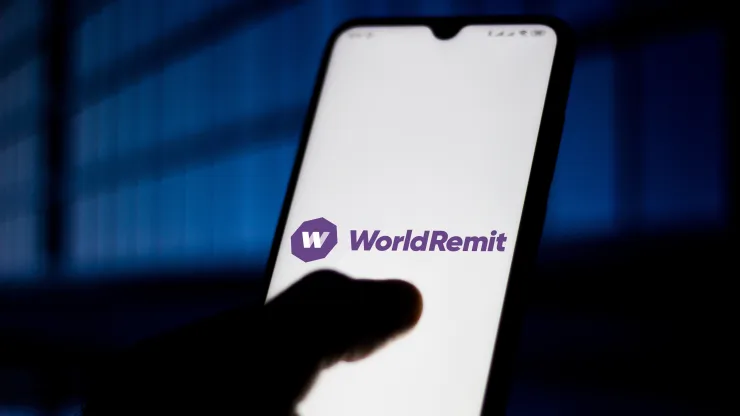Money transfer group Zepz is laying off 420 employees, the company told CNBC exclusively, as the fintech sector grapples with a tough macroeconomic environment.
The London-headquartered company began informing employees of the job cuts on Monday, with individual staff being told by their managers before larger communications were issued. By Tuesday, the whole company had been told about the move.
Zepz, which owns the WorldRemit and Sendwave brands, has a total head count of around 1,600, meaning the cuts translate to about 26% of its workforce.
The reductions will mainly impact Zepz’s customer care and engineering teams as Zepz looks to shift those operations from multiple countries to more centralized hubs, the company said.
The firm is headquartered in London but has regional offices in the United States, Canada, Australia, Hong Kong, Poland, Kenya and beyond.
Zepz said it was implementing what it called “workforce optimization” to account for roles that had been duplicated following its combination of Sendwave with WorldRemit under one parent company.
Collectively, both money transfer services are used by more than 11 million users across 150 countries. Sendwave was acquired by Zepz in 2020 for an undisclosed sum.
It is the second time in just under a year that Zepz has laid off staff. In June 2022, Zepz implemented job cuts affecting around 5% of its workforce, according to Sky News.
Mark Lenhard, Zepz’s CEO, said the decision marked “an important and necessary step in transitioning from two vast, segmented teams to one dynamic organization under Zepz, and laying ambitious foundations towards our long-term strategic direction as a portfolio business.”
He added that the company took the decision to reduce its head count due to a need to streamline its structure rather than macroeconomic pressures.
“Over the last year we have taken a serious look at how to optimize the organization to continue scaling in a mature fashion that sets up the business for long-term success,” he said.
“The remittance industry has maintained robust growth despite global economic conditions, and we’ve seen this audience take great measures to ensure their loved ones are supported as costs rise around the world.”
Employees will be offered support in the form of counseling, coaching, career and CV development, job applications, and interviewing skills.
Despite the job reduction measure, Zepz said it is still hiring for 200 roles.
The company enables users to send money abroad from a smartphone or computer with people on the other end being able to receive it in their bank accounts, by cash, to a mobile wallet, or as a mobile airtime top-up.
The service is a challenger to established money transfer services like Western Union, touting cheaper fees and the ability to move funds rapidly. A close rival is Wise, which claims to offer cheaper international money transfers than the banks.
Fintechs like Zepz are facing a range of challenges including more cost-conscious consumers and heightened regulatory scrutiny. These have hit the value of various companies in the sector — both in the public and private markets. Funding has dried up and several fintechs have taken valuation cuts.
Even legacy banks have struggled to gain traction in the market, with Goldman Sachs recently pulling back on its fintech ambitions.
Zepz last raised cash in August 2021 at a $5 billion valuation when it announced $292 million of new funding from investors led by the hedge fund Farallon Capital. The startup is backed by leading venture capital firms including Leapfrog, TCV and Accel.
“Having hit profitability last year, the Zepz team has been focused on efficient growth and continuing to build a large, sustainable business,” Harry Nelis, a partner at Accel, told CNBC.
“Following the acquisition of Sendwave a couple of years ago, the next stage in the integration of the two companies is to remove the duplication of roles across the brands’ locations.”
“The team’s decision to optimise the workforce, while a difficult one, was important for the business’s long-term growth and we’re confident Zepz will continue to disrupt the industry,” Nelis added.
Zepz has long been a darling of the U.K. fintech scene. It was founded in 2010 by British-Somalian entrepreneur Ismail Ahmed, who started the company after moving to the U.K. after fleeing civil war-torn Somalia.
Ahmed’s idea for creating Zepz, then WorldRemit, stemmed from his own experience moving money across emerging markets; he would transfer funds to his family, who then lived in a refugee camp in Ethiopia, but the transfers were expensive and took months to complete.
Ahmed stepped down as Zepz’s CEO in 2018, though he remains on the board as nonexecutive chairman. His successor at the time was Breon Corcoran, an Irish businessman who formerly led British betting company Paddy Power Betfair.
In 2022, Corcoran was replaced by Mark Lenhard, a former executive at bill payments firm Bill.com, whose appointment reportedly came as the prospects of an initial public offering for the company had waned.
Lenhard said that Zepz “never announced a timeline for IPO and are not planning to announce exit plans at this time.” The company achieved operating profitability in the first half of 2022, he said, adding it is “on a sustainable track to increase profit margins.”

